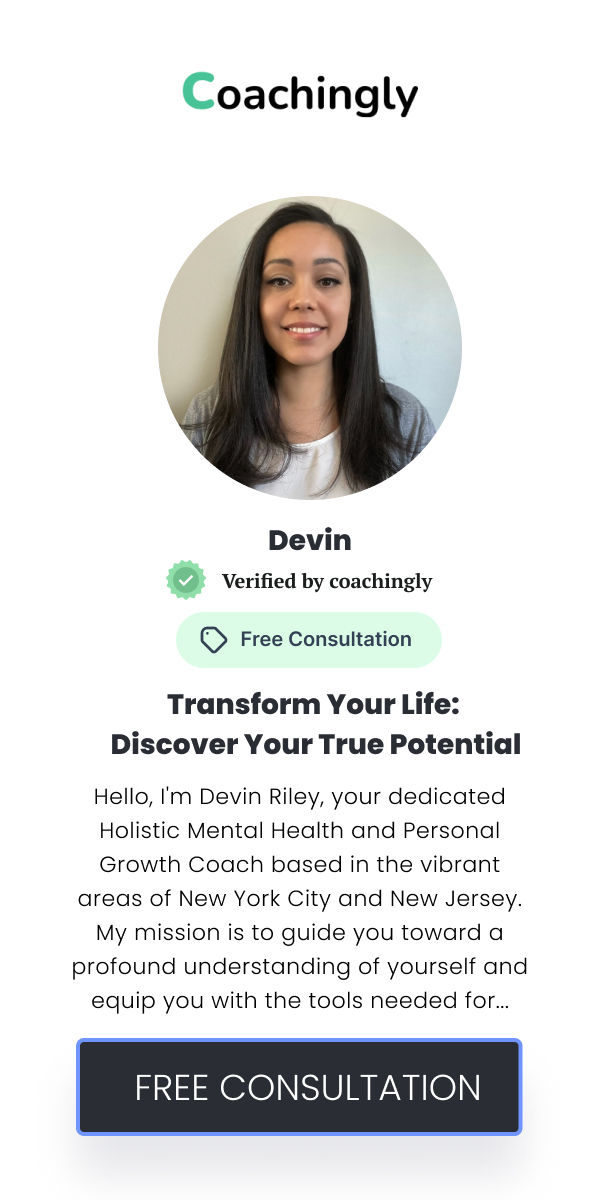
Conflict Resolution Skills for Healthier Relationships
Devin Riley
![]() August 19, 2024
August 19, 2024
Conflict is an inevitable part of any relationship, whether personal or professional. It arises from differences in opinions, needs, values, or desires. These disagreements, if not addressed effectively, can lead to stress, dissatisfaction, and even the deterioration of relationships. Recognising the common causes of conflict - such as miscommunication, unmet expectations, or conflicting goals - is crucial in tackling issues before they escalate. The repercussions of unresolved conflict extend beyond the immediate friction, potentially impacting mental health and overall relationship dynamics. By understanding the nature of conflict, individuals can better prepare themselves to address issues constructively, fostering healthier and more resilient relationships. Emotional intelligence (EI) plays a pivotal role in managing and resolving conflicts. EI involves the ability to recognise, understand, and manage one's own emotions, as well as empathise with others. High emotional intelligence helps individuals remain calm and composed during disputes, facilitating clearer communication and problem-solving. Developing self-awareness allows one to recognise personal triggers and emotional responses, while empathy enables understanding of the other party's perspective. Cultivating these aspects of emotional intelligence equips individuals with the tools needed to navigate conflicts with sensitivity and effectiveness. Through this approach, conflicts can be resolved in a way that honours both parties' feelings and needs. Active listening is a cornerstone of effective conflict resolution. It involves fully engaging with the speaker, not just hearing their words but understanding the underlying emotions and intentions. Practising active listening requires giving undivided attention, avoiding interruptions, and reflecting back what has been heard. This technique helps ensure that all perspectives are acknowledged and valued, reducing misunderstandings and fostering mutual respect. By focusing on what the other person is communicating, individuals can address issues more accurately and constructively. Mastering active listening creates a foundation for open dialogue and collaborative problem-solving, essential for resolving conflicts amicably. Effective communication is critical in resolving disputes and maintaining healthy relationships. Clear and assertive expression of thoughts and feelings helps prevent miscommunication and misunderstandings. Techniques such as "I" statements - e.g., "I feel" or "I need" - allow individuals to convey their concerns without placing blame or causing defensiveness. Maintaining composure and staying calm during discussions can prevent escalation and promote a more productive exchange. It is also important to focus on the issue at hand rather than personal attacks, which can further entrench positions. Developing these communication strategies enhances the ability to navigate disagreements respectfully and constructively. Problem-solving skills are essential for resolving conflicts effectively. Identifying and defining the core issues of a conflict is the first step towards finding a resolution. This involves distinguishing between surface-level disagreements and deeper, underlying concerns. Once the issues are clarified, brainstorming potential solutions collaboratively can lead to mutually satisfactory outcomes. Evaluating these solutions involves considering their feasibility and impact on both parties. Effective problem-solving also requires flexibility and a willingness to compromise, ensuring that both parties feel heard and valued. Implementing these skills can lead to resolutions that strengthen rather than strain relationships. When conflicts become entrenched or particularly challenging, seeking help from a mediator or therapist can be highly beneficial. Professional guidance provides a neutral perspective, helping to facilitate communication and understanding between parties. Mediators use various techniques to encourage dialogue and find common ground, while therapists offer tools and strategies to address deeper emotional issues. A Holistic Mental Health and Personal Growth Coach can also play a crucial role in managing relationship conflicts, offering tailored strategies and support for personal development. By leveraging professional expertise, individuals can gain new insights and approaches to resolving conflicts effectively and sustainably. Effective conflict resolution contributes significantly to the health and longevity of relationships. Addressing conflicts promptly and constructively prevents the build-up of resentment and promotes a more harmonious interaction. Skills developed through conflict resolution, such as empathy, active listening, and clear communication, can be applied to everyday interactions, fostering stronger and more supportive relationships. Regularly practising these skills ensures that relationships remain resilient and adaptable to challenges. Investing in conflict resolution not only improves current relationships but also builds a solid foundation for future interactions. The ongoing application of these principles helps maintain a balanced and fulfilling connection with others. Incorporating practical exercises into daily life can significantly enhance conflict resolution skills. Techniques such as mindfulness and self-reflection help manage stress and maintain emotional balance during disputes. Tools like journaling or role-playing can aid in practising communication strategies and problem-solving approaches. Additionally, engaging in regular self-assessment and seeking feedback can help refine these skills over time. Various resources, including books and workshops, offer valuable insights and techniques for continuous personal growth. By integrating these practices into routine, individuals can develop and maintain effective conflict resolution skills, benefiting all aspects of their relationships.Understanding Conflict in Relationships
The Role of Emotional Intelligence in Conflict Resolution
Active Listening as a Conflict Resolution Skill
Communication Strategies for Resolving Disputes
Developing Problem-Solving Skills
The Benefits of Mediation and Professional Guidance
Building and Maintaining Healthy Relationships Through Conflict Resolution
Practical Exercises and Tools for Enhancing Conflict Resolution Skills

Recent Articles
Exploring Self-Discovery: How Holistic Coaching Can Help You Find Your Purpose
Self-discovery is a profound a...
![]() Aug 21, 2024
Aug 21, 2024
The Role of Empathy in Holistic Mental Health Coaching
Holistic mental health coachin...
![]() Aug 20, 2024
Aug 20, 2024
Overcoming Mental Health Challenges with Holistic Coaching Approaches
Understanding Holistic Mental ...
![]() Aug 18, 2024
Aug 18, 2024
Effective Strategies for Conflict Resolution in Personal and Professional Relationships
Understanding Conflict in Rela...
![]() Aug 17, 2024
Aug 17, 2024
From Stress to Success: Managing Work and Personal Life Balance
Understanding the Modern Work-...
![]() Aug 16, 2024
Aug 16, 2024
Improving Your Personal Growth Journey with Holistic Coaching
Understanding Holistic Coachin...
![]() Aug 15, 2024
Aug 15, 2024
Effective Coping Strategies for Managing Stress and Emotional Challenges
Understanding Stress and Emoti...
![]() Aug 14, 2024
Aug 14, 2024
Unlocking Emotional Resilience: A Holistic Approach to Mental Health
Understanding Emotional Resili...
![]() Aug 13, 2024
Aug 13, 2024
Enhancing Your Relationship Skills: Tools and Techniques for Better Communication
Effective communication lies a...
![]() Aug 12, 2024
Aug 12, 2024
The Power of Active Listening in Holistic Coaching
Holistic coaching integrates a...
![]() Aug 11, 2024
Aug 11, 2024
Creating a Safe Space: The Importance of Empathy in Coaching
Understanding the Role of Empa...
![]() Aug 10, 2024
Aug 10, 2024
Why Choose Holistic Coaching for Your Mental Health and Personal Growth Needs?
Holistic coaching is a transfo...
![]() Aug 09, 2024
Aug 09, 2024
Stress Management Techniques That Promote Long-Term Well-Being
Understanding Stress and Its I...
![]() Aug 08, 2024
Aug 08, 2024
How to Develop Resilience Through Personalized Coping Strategies
Understanding ResilienceResili...
![]() Aug 07, 2024
Aug 07, 2024
Building Stronger Relationships with Effective Communication Techniques
Understanding the Foundation o...
![]() Aug 06, 2024
Aug 06, 2024
Mindfulness Practices to Enhance Your Self-Awareness and Well-Being
Mindfulness is a practice root...
![]() Aug 05, 2024
Aug 05, 2024
Transforming Anxiety into Confidence: Techniques That Work
Understanding the Nature of An...
![]() Aug 04, 2024
Aug 04, 2024
Personal Growth Through Holistic Coaching: What You Need to Know
Understanding Holistic Coachin...
![]() Aug 03, 2024
Aug 03, 2024
Navigating Depression and Trauma: A Holistic Coaching Perspective
Understanding Depression and T...
![]() Aug 02, 2024
Aug 02, 2024
The Benefits of Integrating Mindfulness into Your Daily Routine
Understanding MindfulnessMindf...
![]() Aug 01, 2024
Aug 01, 2024
How to Achieve Emotional Balance Through Holistic Coaching
Achieving emotional balance is...
![]() Jul 31, 2024
Jul 31, 2024
Healing from Trauma: Strategies for Emotional Recovery and Growth
Understanding Trauma and Its I...
![]() Jul 30, 2024
Jul 30, 2024
